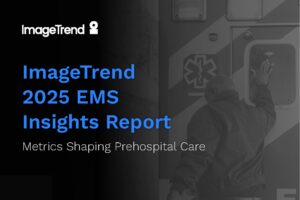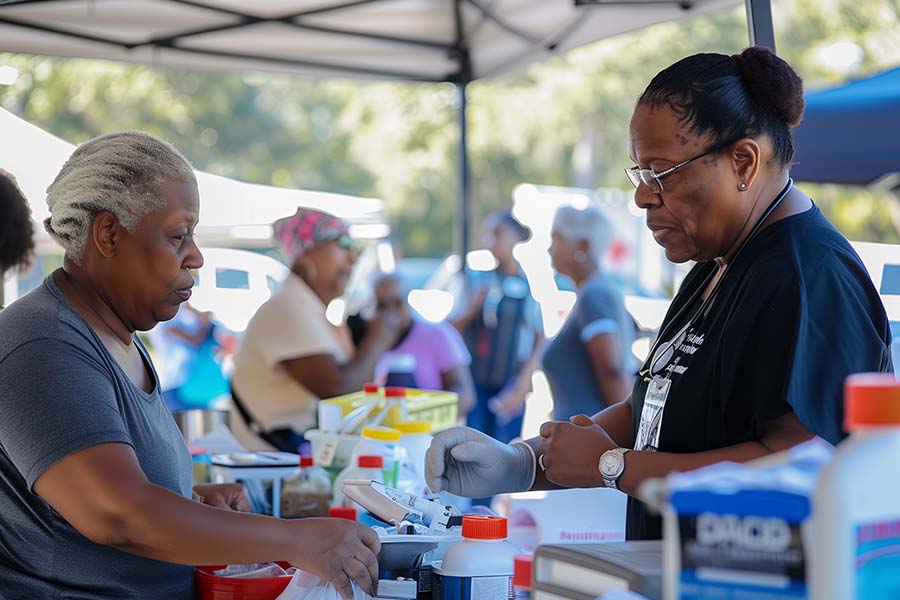In 2020, Missouri repealed its universal motorcycle helmet law—a move that raised concern across trauma and emergency care systems. Not long after, data began to tell a troubling story. Peggy Huddleston, Program Specialist at the Missouri Department of Health and Senior Services, noticed an uptick in severe motorcycle injuries and fatalities involving unhelmeted riders.
In a recent interview, Huddleston walked through how her team used ImageTrend data to investigate the impacts of the law change, share findings across healthcare and public health communities, and contribute to new legislative efforts aimed at reinstating helmet requirements. You can scroll down to watch the full video.
“Being in the trauma business, we noticed that there was an uptick in fatal motorcycle accidents of unhelmeted riders,” said Huddleston. “If you did survive the crash, there was a significant increase in the amount of money it cost for rehab, long-term care, and hospital stays—along with the impact it had on families.”
Investigating the Repeal Through EMS Data
To better understand the impact, Huddleston teamed up with Morgan Anderson, an epidemiologist at ImageTrend, on a research project analyzing EMS trauma data.
With the use of ImageTrend Elite, the team filtered EMS data submitted to the state to identify trends in motorcycle-related incidents following the law change. The data revealed a clear increase in both injuries and fatalities among unhelmeted riders—findings that aligned with what many trauma professionals across the state were already seeing firsthand.
“We had actual data to show that there was an increase in injuries and fatalities,” Huddleston said.
They didn’t stop with EMS data alone. The team also pulled in additional information from the Missouri Highway Patrol and the Missouri Department of Transportation, which both track motorcycle crash statistics. These external sources helped validate the EMS findings and strengthened the case for further action.
Huddleston emphasized how the combination of field data and public safety reporting painted a much fuller picture of the consequences of the policy change, and laid the groundwork for sharing those insights more broadly.
Sharing the Findings Across Healthcare and Public Health
Once the analysis was complete, Huddleston’s team worked to ensure the findings reached the right audiences, from trauma surgeons to policymakers. The report was presented at multiple conferences, shared with trauma hospitals across the state, and published on the Department of Health and Senior Services website for public access.
“We put it on our website at the department so anybody could access the information,” said Huddleston. “We also shared it in some of our meetings with the trauma hospitals and trauma surgeons, and they were very interested in all of the information.”
The presentations sparked meaningful conversations among clinical partners who were already seeing the impact firsthand but hadn’t yet seen the data quantified. And the impact didn’t stop at Missouri’s borders; other states with helmet law repeals began taking notice.
“We have other states that are looking at this to see how things progress in Missouri,” said Huddleston. “They have helmeted motorcyclists in their states too, and they’re watching to see what happens.”
The growing interest from outside Missouri shows just how influential data-driven public health research can be, not only in shaping local decisions but in informing broader national conversations around injury prevention and trauma care.
From Data to Policy: Fueling Legislative Action
The findings have made their way from data dashboards to the Missouri Capitol, where advocates are now pushing to reinstate helmet requirements. According to Huddleston, the Motorcycle Coalition Group is working with lawmakers to introduce a bill aimed at reversing the 2020 repeal.
“The Motorcycle Coalition Group… is looking for a sponsor at the Capitol… to submit a law to repeal the repeal of the helmet law,” she said. “This has had a big impact, and it has gone all the way to the Capitol.”
One state representative, whose husband sustained a traumatic brain injury in an unhelmeted crash shortly after the repeal, has shown strong interest in sponsoring a bill during the 2026 legislative session.
“So hopefully we can get the motorcycle helmets back on the motorcyclists. It does save lives,” said Huddleston.
Why Every Data Point Matters
From the field to the registry, everyone involved in EMS documentation played a role in this project. Huddleston emphasized that meaningful change starts with complete, accurate records, and that includes every hand involved in data entry.
“The best advice I can give is that data matters,” she said. “Anybody entering the data, whether it’s a paramedic or an EMT or a registrar—that data matters.”
As the findings gained traction, other states began taking notice. Agencies with similar helmet laws have reached out to learn from Missouri’s approach, asking how the project came together and what steps they can take to replicate it in their own regions.
The message is clear: from documenting a crash scene to analyzing trends across a state, every data point contributes to a larger story, one that can shape safer policies and save lives.
Watch the Full Video
Optional Pre-Title H3 – Basic Content on White
Paragraph Text – Lorem ipsum dolor sit amet, consectetur adipiscing elit, sed do eiusmod tempor incididunt ut labore et dolore magna aliqua. Ut enim ad minim veniam, quis nostrud exercitation ullamco laboris nisi ut aliquip ex ea commodo consequat.




